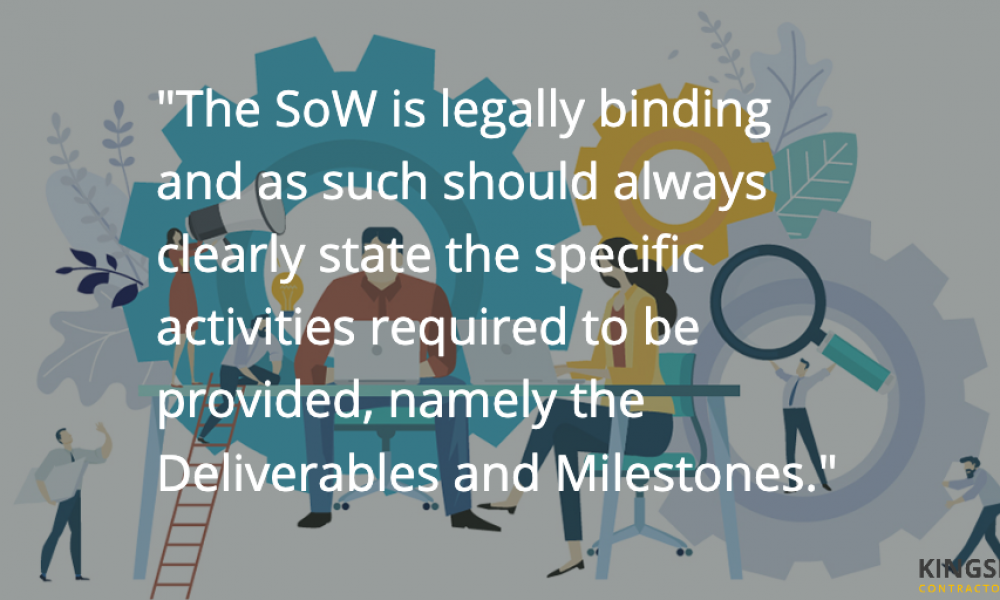Should you work under a Statement of Work?
It’s likely that, as a contractor, you’ve not heard of a Statement of Work (SoW) before and there’s not really…
This is a guest post from Stuart Juggins, founder of Aardent. You can find more information about who Aardent are…

This is a guest post from Stuart Juggins, founder of Aardent. You can find more information about who Aardent are and what they can do for recruiters at the bottom of this piece.
A Statement of Work or SoW in basic terms is a contract setting out the commercial agreement between two parties, which is used to define and document a set of objectives, outcomes, tasks, terms and financial conditions to be measured against.
The SoW is legally binding and as such should always clearly state the specific activities required to be provided, namely the Deliverables and Milestones. Any engagement that utilises a SoW should also detail all of the relevant payment conditions for the respective deliverables and milestones, stating conditions for when payments will be triggered.
The SoW will document all of the activity in detail that the chosen supplier (a contractor, consultancy etc.) and procurer (the client) is responsible for completing, along with the duration of the project / engagement and specifying how and when payments will be made. All of this activity will be based against the completion of specific milestones and can be paid on a time & materials, capped T&M or fixed-price basis.
When utilising SoW’s, there are several key components to include which define and set out the rules for engagement and performance conditions:
Finally, let’s understand when and where a SoW should and should not be used.
The obvious example is short to mid-term projects whereby the activity would need external expertise, scale or knowledge to complete and there is a need to hold that engagement at arm’s length. Allowing freedom to operate and deliver the outcomes accordingly.
The resource makeup of SoW’s is almost irrelevant and can be used for single person and multi-person (team) engagements the actual outcomes are what are relevant.
SoW’s should really not be used to provide people as the outcome, in these engagements a traditional resourcing solution is still best and most effective.
Aardent are a specialist consultancy who advise, guide and transform Recruitment, Staffing and Talent businesses to evolve from traditional resource provision into higher-value, outcomes based (SoW) services to meet the growing market demands.
We work with our clients on every aspect including strategy creation, sales proposition, sales coaching, solution design and project delivery – ensuring all elements are 100% aligned to their current business, market and sectors.
For more information on how Aardent can help evolve your recruitment business, please don’t hesitate to contact aardent.com